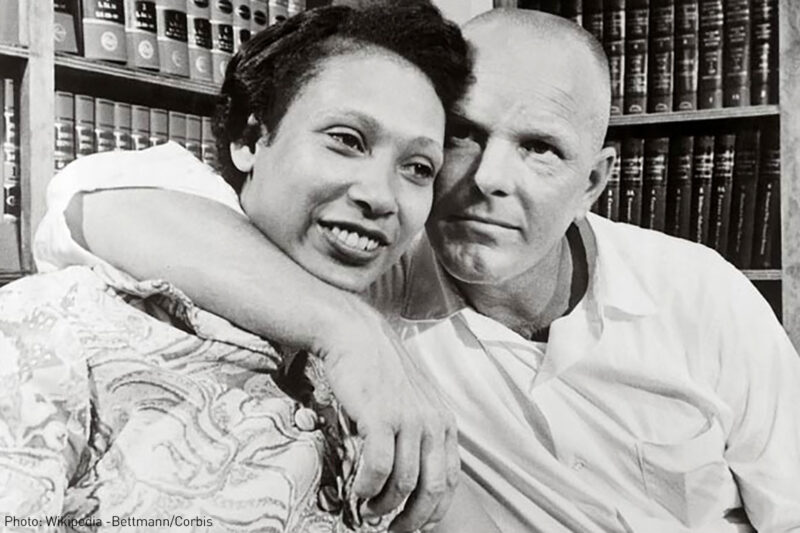
The month of June represents a double anniversary for Mildred and Richard Loving. Two weeks ago, the Virginia couple would have celebrated their 55th wedding anniversary. And earlier this week on June 12th, Americans celebrated the 46th anniversary of the landmark Supreme Court decision which bears their name, Loving v. Virginia, and which recognized an equal right to marriage for all people, regardless of race.
Virginia's treatment of Mildred and Richard is still shocking 50 years later. Mildred was black, Richard was white. They married on June 2nd, 1958, in Washington, DC. By this act of love, they committed what 17 states (Virginia among them) still considered to be a crime: miscegenation. Under Virginia's 400-year-old anti-miscegenation laws, any marriage between a white and non-white person was automatically void—including those from states where interracial marriage was legal. A couple convicted of interracial marriage faced felony charges and punishment of one to five years in prison.
The Lovings lived in the Central Point region of Virginia, home to a large mixed-race community and known for relatively friendly race relations. They hoped that no one would bother to apply the law to them, and that they would be permitted to settle down and start their family in peace. They were wrong.
Acting on an anonymous tip, the Caroline County Sheriff and deputies raided the Lovings' home, kicking in their bedroom door, weapons drawn, in the dead of night. Facing the threat of prison, Mildred and Richard pleaded guilty and accepted a punishment that can only be described as medieval: a 25-year banishment from their home in Virginia.
Fortunately, their ordeal in the legal system came to a happy conclusion. Represented by attorneys from the ACLU, the Lovings took their case to the U.S. Supreme Court and won. On behalf of a unanimous court, Chief Justice Earl Warren wrote, "The freedom to marry has long been recognized as one of the vital personal rights essential to the orderly pursuit of happiness by free men," and "Under our Constitution, the freedom to marry, or not marry, a person of another race resides with the individual and cannot be infringed by the State."
With 46 years of history behind us, the world that would have made criminals of Mildred and Richard can seem very far away. More couples than ever are marrying outside their own race (), and the percentage of people who "would be fine" with an interracial marriage in their immediate family has reached a record high. Interracial married couples appear in . The child of an interracial marriage works from the Oval Office.
But discriminatory attitudes about marriage never really disappeared. For all their undeniable progress, interracial couples and their children continue to encounter much the same and that hounded the Lovings fifty years ago. And they're not the only ones. In an equally stark affront to Loving's ideals, millions more Americans remain legally unable to marry the person they love, not because their race is different, but because their sex is the same.
Two cases, and the ACLU's United States v. Windsor put the rights of same-sex couples squarely before the Court. Like Loving v. Virginia 46 years ago, the stakes could not be higher. But however the Court resolves these cases, attitudes about same sex marriage are already, just as attitudes about interracial marriage did a generation or two ago. Nearly five decades after the Supreme Court overturned the discriminatory laws that harmed couples like Mildred and Richard Loving, they again have the chance to make history and extend the freedom to marry to all loving and committed couples, this time, regardless of sexuality.
Learn more about marriage discrimination and other civil liberties issues: Sign up for breaking news alerts, , and .

